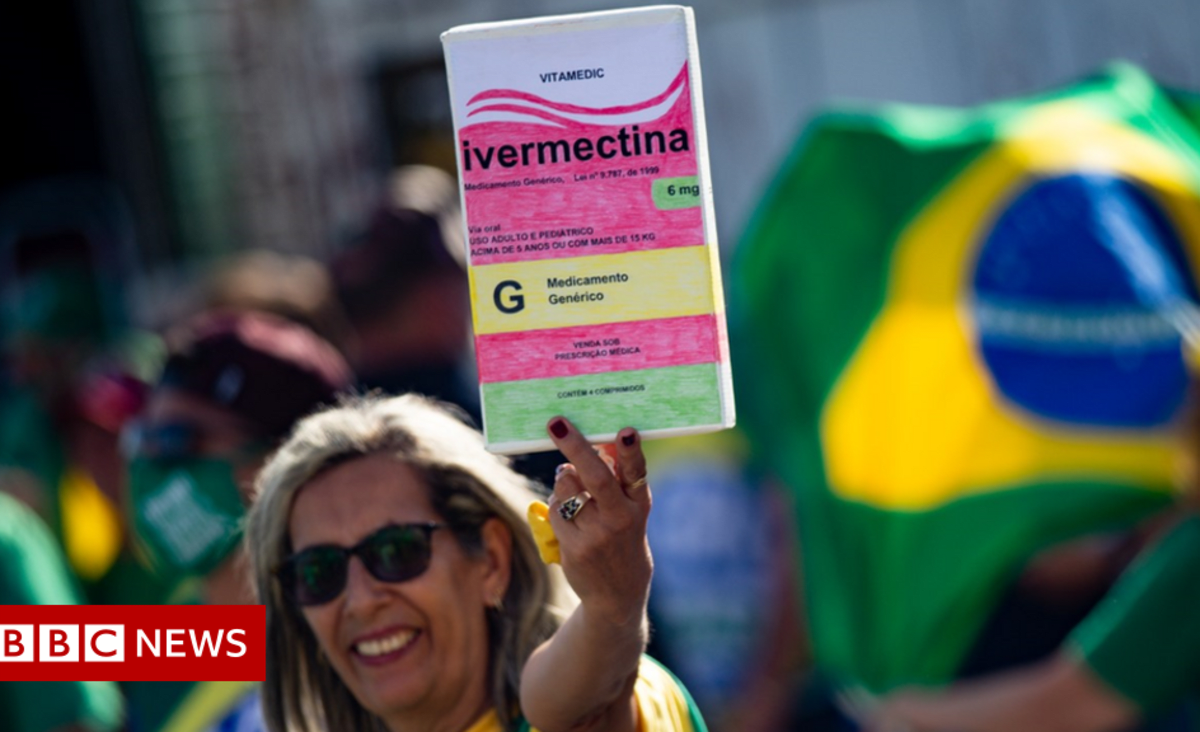This post may refer to COVID-19
To access official information about the coronavirus, access CDC - Centers for Disease Control and Prevention.

www.bbc.com
Ivermectin: How false science created a Covid 'miracle' drug
Thousands worldwide have taken ivermectin to fight Covid. But what's the evidence?
International
Ivermectin has been called a Covid "miracle" drug, championed by vaccine opponents, and recommended by health authorities in some countries. But the BBC can reveal there are serious errors in a number of key studies that the drug's promoters rely on.
For some years ivermectin has been a vital anti-parasitic medicine used to treat humans and animals.
But during the pandemic there has been a clamour from some proponents for using the drug for something else - to fight Covid and prevent deaths.
The health authorities in the US, UK and EU have found there is insufficient evidence for using the drug against Covid, but thousands of supporters, many of them anti-vaccine activists, have continued to vigorously campaign for its use.
Members of social media groups swap tips on getting hold of the drug, even advocating the versions used for animals.
The hype around ivermectin - based on the strength of belief in the research - has driven large numbers of people around the world to use it.
Campaigners for the drug point to a number of scientific studies and often claim this evidence is being ignored or covered up. But a review by a group of independent scientists has cast serious doubt on that body of research.
The BBC can reveal that more than a third of 26 major trials of the drug for use on Covid have serious errors or signs of potential fraud. None of the rest show convincing evidence of ivermectin's effectiveness.
Dr Kyle Sheldrick, one of the group investigating the studies, said they had not found "a single clinical trial" claiming to show that ivermectin prevented Covid deaths that did not contain "either obvious signs of fabrication or errors so critical they invalidate the study".
Major problems included:
The same patient data being used multiple times for supposedly different people
Evidence that selection of patients for test groups was not random
Numbers unlikely to occur naturally
Percentages calculated incorrectly
Local health bodies unaware of the studies
The scientists in the group - Dr Gideon Meyerowitz-Katz, Dr James Heathers, Dr Nick Brown and Dr Sheldrick - each have a track record of exposing dodgy science. They've been working together remotely on an informal and voluntary basis during the pandemic.
They formed a group looking deeper into ivermectin studies after biomedical student Jack Lawrence spotted problems with an influential study from Egypt. Among other issues, it contained patients who turned out to have died before the trial started. It has now been retracted by the journal that published it.
The group of independent scientists examined virtually every randomised controlled trial (RCT) on ivermectin and Covid - in theory the highest quality evidence - including all the key studies regularly cited by the drug's promoters.
RCTs involve people being randomly chosen to receive either the drug which is being tested or a placebo - a dummy drug with no active properties.
























































